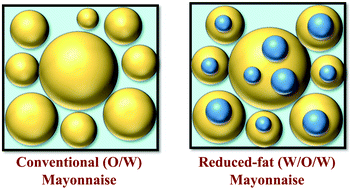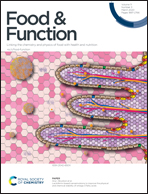Future foods: a manifesto for research priorities in structural design of foods
Abstract
A number of major challenges facing modern society are related to the food supply. As the global population grows, it will be critical to feed everyone without damaging the environment. Advances in biotechnology, nanotechnology, structural design, and artificial intelligence are providing farmers and food manufacturers will new tools to address these problems. More and more people are migrating from rural to urban environments, leading to a change in their dietary habits, especially increasing consumption of animal-based products and highly-processed foods. Animal-based foods lead to more greenhouse gas production, land use, water use, and pollution than plant-based ones. Moreover, many animal-based and highly-processed foods have adverse effects on human health and wellbeing. Consumers are therefore being encouraged to consume more plant-based foods, such as fruits, vegetables, cereals, and legumes. Many people, however, do not have the time, money, or inclination to prepare foods from fresh produce. Consequently, there is a need for the food industry to create a new generation of processed foods that are desirable, tasty, inexpensive, and convenient, but that are also healthy and sustainable. This article highlights some of the main food-related challenges faced by modern society and how scientists are developing innovative technologies to address them.

- This article is part of the themed collections: Recent Review Articles and 8th International Symposium on Delivery of Functionality in Complex Food Systems (DOF 2019)


 Please wait while we load your content...
Please wait while we load your content...